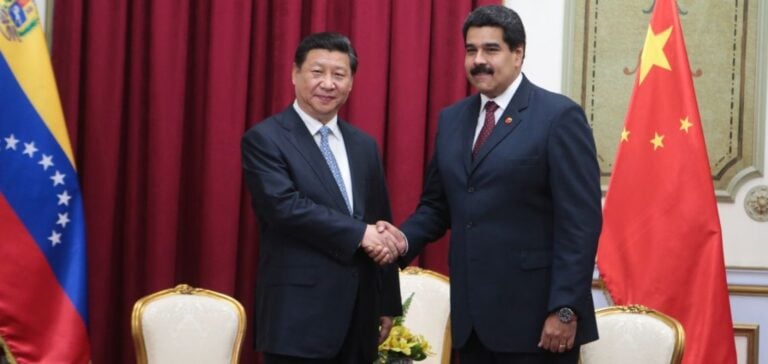The state-owned Guangdong Petrochemical refinery in Guangdong province is preparing to receive a shipment of Merey crude from Venezuela around March 23. This will be the refinery’s first direct import of Venezuelan crude since its launch in February 2023. Designed specifically to process heavy, acidic crudes, this refining complex is well equipped to handle the characteristics of Merey crude.
Cargo specifics and import process
The Panama-flagged VLCC (Very Large Crude Carrier) Elysia left the José oil terminal on February 2. It is scheduled to dock at the port of Jieyang on March 23 to unload around 289,000 mt of Merey crude, according to S&P Global Commodities at Sea shipping data. Merey crude, with an API (American Petroleum Institute) gravity of 16 and a sulfur content of 2.7%, requires blending prior to distillation due to its high sulfur content.
The context of sanctions and the acquisition of crude oil
Traditionally, Chinese state-owned refineries have avoided Venezuelan crude imports because of US sanctions. However, this acquisition by Guangdong Petrochemical was made possible following the partial easing of sanctions by the Biden administration on October 18, 2023, opening a window until April 18, 2024. This exception contrasts with the usual practice of independent Chinese refineries, the main purchasers of Venezuelan crude despite sanctions since October 2019.
Origin and diversification of supply
Initially envisaged in 2011 as a joint venture between PetroChina and PDVSA (Petróleos de Venezuela, S.A.), the construction of Guangdong Petrochemical was intended to process exclusively Merey crude. Despite PDVSA’s withdrawal for financial reasons, Merey crude remains an important part of the refinery’s crude portfolio, which also includes heavy crudes from Iraq and Iran.
Chinese imports of Venezuelan crude in February
In February, China officially imported 352,455 mt of Venezuelan crude, marking the first shipment since October 2019, according to data from the GAC (General Administration of Customs). This import signals renewed interest in Venezuelan crude, often masked as coming from Malaysia by independent refiners to circumvent sanctions. Venezuelan heavy and sour crudes are offered at a discount of $8-9/b to ICE Brent futures, according to trade sources.
Guangdong Petrochemical’s direct import of Merey crude represents a significant milestone in Sino Venezuelan energy exchanges, reflecting a strategic adaptation to current geopolitical and commercial conditions. This move could have repercussions on the crude oil supply dynamics of Chinese refineries and on the global energy market in the face of eased sanctions.





















